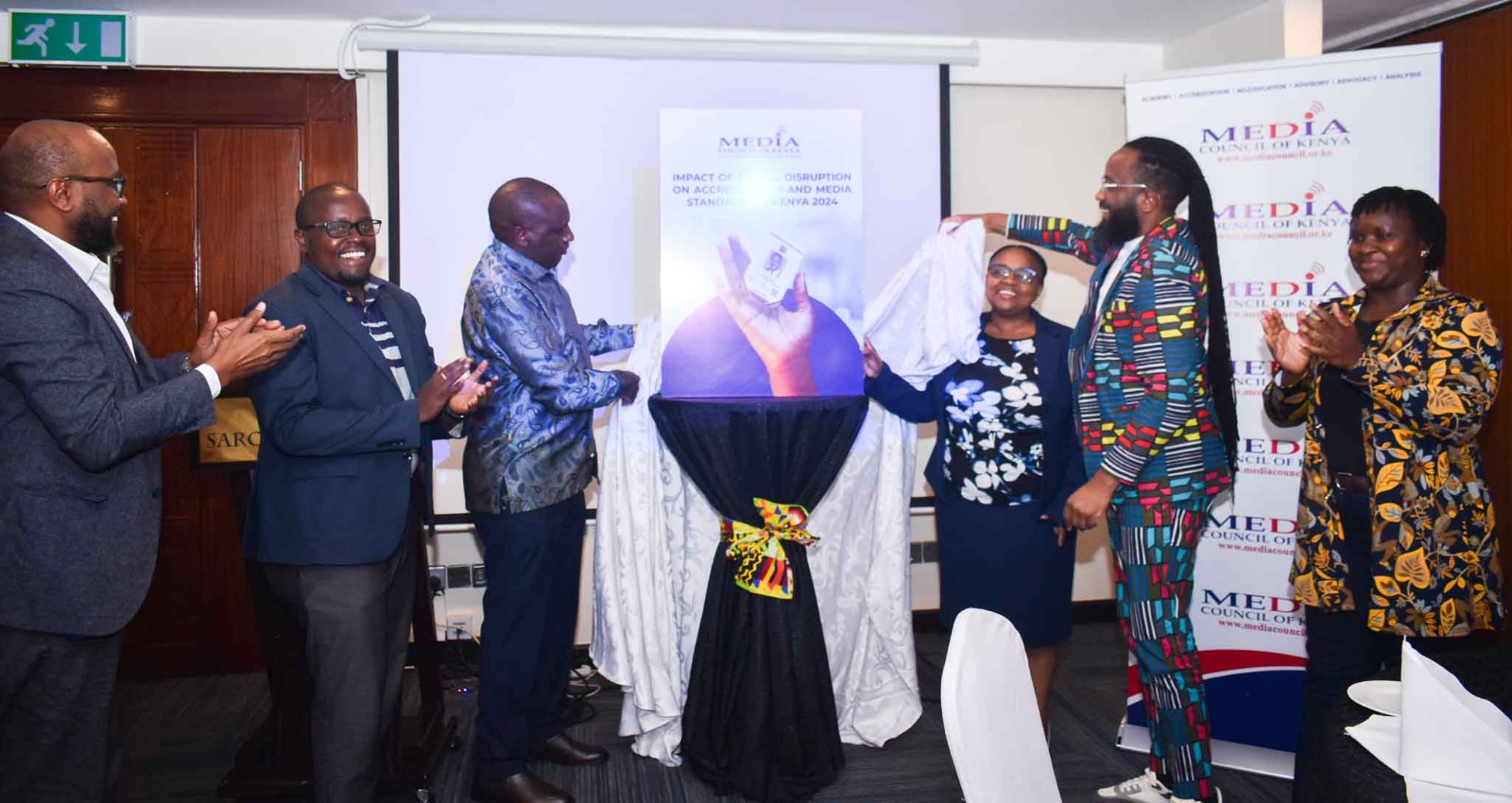
Content creators have been urged to embrace accreditation as a means to enhance their credibility and professional standing within the media industry.
Media Council of Kenya (MCK) CEO David Omwoyo underscored the necessity of accreditation for content creators, highlighting that it provides essential recognition and affirms their status as professionals.
“Accreditation is crucial as it enables professionals to engage strategically within the media space, ensuring their voices are heard and their interests represented. Accreditation is not only about individual recognition but also about creating a collective bargaining power that can address issues plaguing the media industry.,” Mr Omwoyo said today at an accreditation sensitisation forum for local content creators and producers. During the event, the Council also launched a report on the impact of digital disruption on accreditation and media standards.
He urged content creators to look at accreditation positively, noting that on top of enhancing their credibility, it also helps in negotiating better opportunities.
The MCK CEO also emphasised the need for ethical journalism, especially in the digital age where misinformation is rampant.
“What we have begun today is a journey towards promoting professionalism in the industry. Let’s engage in ethical journalism, seek the truth, report it accurately and do no harm,” he said.
MCK Manager for Accreditation and Compliance Rebecca Mutiso said the Council is adapting to the evolving media landscape, adding that including content creators in the accreditation process would grant them the credibility they need to thrive.
The Chairperson of the Kenya Film and Television Professional Association Ezekiel Onyango highlighted the importance of bridging the gap between traditional and new media. He called for research-driven policies that would foster innovation and support the integration of technology in the creative process.
“This is a timely conversation. We need to build bridges between new media and old media, driven by research and informed policies. Technology has significantly impacted creativity and the media landscape, and we must leverage this to our advantage”, Mr Onyango noted.
He also stressed the need for more local platforms to reduce over-reliance on international platforms, thus providing financial capabilities and opportunities for local content creators.
The Chair of the Entertainment and Arts Journalists Association Boniface Mwalii shed light on the challenges faced by professionals in the arts sector and called for enhanced writing skills, audiovisual production capabilities and creation of local platforms for content creators.
“The arts sector has contributed significantly to the economy, but we need to ensure that professionals in this community are well equipped and in sync. Enhancing writing skills and audiovisual capabilities are crucial steps forward”, he emphasised.
Mr Mwalii also highlighted the importance of synergy between legacy media and new media, better communication management and support for innovators. He pointed out the need for legal and financial mechanisms to support content creators and ensure job security.
The report launched at the event, The Impact of Digital Disruption on Accreditation and Media Standards, will guide in the development of strategies to enhance the accreditation process and uphold media standards in the digital age.
The push for professionalism in the content creation industry by the MCK marks a significant step towards a more structured and credible media landscape in Kenya. By embracing accreditation, content creators can enhance their credibility, engage more effectively within the media space, and contribute to the industry’s overall growth and professionalism.